#Carlo Giuliano
Explore tagged Tumblr posts
Photo
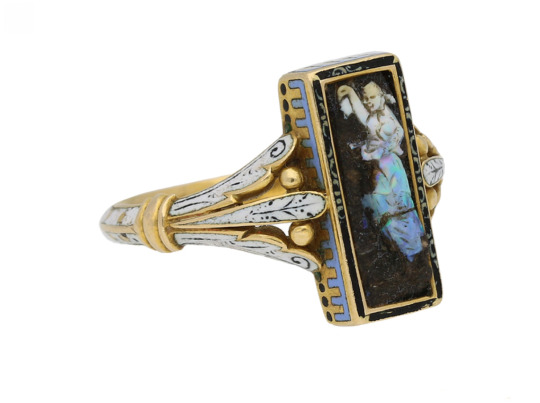


5 notes
·
View notes
Text
Giuliano Saba: L'arte dell'equilibrio cromatico e monocromatico. Un percorso di maestria artistica. Galleria Nova Karel - Cagliari
Giuliano Saba è un artista che padroneggia questa complessa alchimia, dove la vivacità cromatica non cede mai il passo alla confusione.
Spargere colori sgargianti su una tela e puntare all’effetto sorpresa può sembrare semplice, ma creare opere equilibrate in cui i colori convivono armoniosamente senza entrare in conflitto è tutta un’altra storia. Giuliano Saba è un artista che padroneggia questa complessa alchimia, dove la vivacità cromatica non cede mai il passo alla confusione. La vera sfida per un artista è lavorare con un…
#Alessandria today#Arte astratta#Arte contemporanea#arte e colore#arte e monocromatismo#Arte figurativa#arte informale#arte monocromatica#Artisti Italiani#Cagliari#colori sgargianti#creatività artistica#Cultura#equilibrio cromatico#esposizioni d&039;arte#esposizioni in Italia#Galleria d&039;arte#galleria d&039;arte Cagliari#Galleria Nova Karel#Giuliano Saba#Giuliano Saba artista#Giuliano Saba opere#Google News#italianewsmedia.com#maestria artistica#mostra d&039;arte Cagliari#mostre a Cagliari#mostre marzo 2025#Pier Carlo Lava#Pittura
0 notes
Text
Tutti a casa
Benvenuti o bentornati sul nostro blog. Nello scorso articolo abbiamo deciso di mettere in pausa le recensioni dedicate ai film e di passare al mondo della letteratura per parlare di un libro fantasy per ragazzi davvero simpatico, Il meraviglioso mondo di Arthur e Rose di Jenny McLachlan. Arthur e Rose sono due gemelli di 11 anni che tra non molto inizieranno le medie e che si trovano in vacanza…
#Age & Scarpelli#Alberto Innocenzi#Alberto Sordi#Alex Nicol#Armando Zanon#Assunto Cecchereli#Carla Gravina#Carlo Carlini#Carlo Egidi#Claudio Gora#comedy#commedia#Didi Perego#Dino De Laurentiis#Dino De Laurentiis cinematografica#Dino De Laurentiis distribuzione#drama#drammatico#Eduardo De Filippo#film#Francesco Lavagnino#Giuliano Laurenti#guerra#Guido Celano#Jole Mauro#Lelio Volponi#Luigi Comencini#Luisina Conti#Mac Ronay#Marcello Fondato
1 note
·
View note
Text
oggi, 13 aprile, a genova: presentazione di "da una non breve unità di tempo", di sandro ricaldone
cliccare per ingrandire RICALDONE A VILLA CROCE OGGI, giovedì 13 aprile, alle ore 17:30, al Museo di arte contemporanea di Villa Croce (via Ruffini, Genova) sarà presentato il volume di Sandro Ricaldone Da una non breve unità di tempo (Il Canneto editore, pagine 525, 30 euro). All’incontro, introdotto da Francesca Serrati, parteciperanno Giorgia Barzetti, Stefano Bigazzi, Nicolò De Mari, Giuliano…

View On WordPress
#Andrea Crosa#Angelo Pretolani#Anna Oberto#art#arte#arte contemporanea#Aurelio Caminati#Bauhaus immaginista#Beppe Dellepiane#Carlo Merello#Claudio Costa#fluxus#Francesca Serrati#Giorgia Barzetti#Giuliano Galletta#Il Canneto#Il Canneto editore#Internazionale Situazionista#lettrismo#Luca Vitone#Martino Oberto#Mauro Ghiglione#Museo d&039;Arte Contemporanea di Villa Croce#Nicolò De Mari#Pier Giorgio Colombara#Pier Giulio Bonifacio#Roberto Agus#Roberto Rossini#Rodolfo Vitone#Sandro Ricaldone
0 notes
Text

Renaissance revival pendant on chain
mid-late 19th century
gold, amethyst, enamel, pearl, diamond
by Carlo Giuliano
The MET
#so stunning.#antique jewellery#antique jewelry#jewelry#jewellery#vintage jewelry#19th century#fashion history#necklace#necklaces#frostedmagnolias
545 notes
·
View notes
Text

Pendant brooch in the form of a Gothic Cross
Carlo Giuliano, Italian
ca. 1880
The MET Museum
#victorian#victorian era#victorian fashion#fashion history#historical fashion#19th century#jewellery#jewelry#pin#brooch
234 notes
·
View notes
Text

Sapphire brooch by Carlo Giuliano, late 1800s.
323 notes
·
View notes
Text
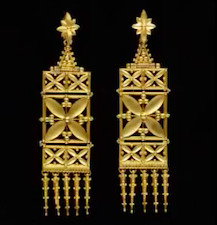
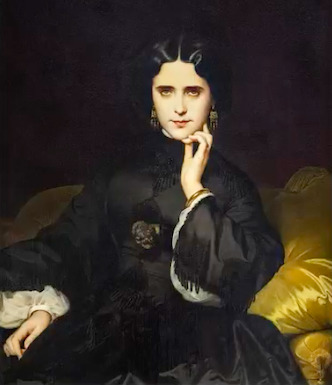
"Pair of Earrings" by carlo Giuliano (circa 1865-70) and "Marie-Anne Detourbay, later Comtesse de Loynes" by Amuary Duval (1862) presented in “A History of Jewellery: Bedazzled (part 5: 19th Century)” by Beatriz Chadour-Sampson - International Jewellery Historian and Author - for the V&A Academy online, march 2024.
#conferences#inspirations bijoux#peinture#style#Giuliano#Detourbay#Loynes#Duval#ChadourSampson#V&AAcademy#Victoria&AlbertMuseum
93 notes
·
View notes
Text

V Biennale D'Arte Contemporanea. "Struttura, Immagine e Percezione", (folder), San Martino di Lupari (PD), September-October 1979 [Libreria di Frusaglia, Pesaro]
Texts: Umbro Apollonio, Bruno Damore, Toni Toniato, Giuliano Menato
Art: Alberto Biasi, Sara Campesan, Hugo Demarco, Marialuisa de Romans, Horacio Garcia Rossi, Hans Jörg Glattfelder, Julio Le Parc, Aldo Mengolini, Yves Millecamps, Salvator, Marcello Morandini, Philippe Morrison, Carlo Nangeroni, Thomas Norbert, Gaetano Pinna, Jiro Sugawara, Victor Simonetti, Jorrit Tornquit, Guido Zanoletti
#graphic design#art#arte cinetica#kinetic art#op art#geometry#pattern#exhibition#folder#cover#umbro apollonio#bruno damore#toni toniato#giuliano menato#1970s
13 notes
·
View notes
Text
Giuliano Necklace

The late Queen had another necklace that she wore only on private occasions. Made around the turn of the century by the Revivalist jewellers Carlo and Arthur Giuliano, this long openwork gold necklace is set with multicoloured sapphires and zircons and decorated with green enamel leaves.'

36 notes
·
View notes
Text
Opera on Youtube 4
L'Elisir d'Amore (The Elixir of Love)
Maggio Musicale Fiorentino, 1967 (Carlo Bergonzi, Renata Scotto; conducted by Gianandrea Gavazzeni; no subtitles)
Metropolitan Opera, 1981 (Luciano Pavarotti, Judith Blegen; conducted by Nicola Rescigno; Spanish subtitles) – Part I, Part II
Metropolitan Opera, 1991 (Luciano Pavarotti, Kathleen Battle; conducted by James Levine; English subtitles) – Part I, Part II
Vienna State Opera, 2005 (Rolando Villazón, Anna Netrebko; conducted by Alfred Eschwé; English subtitles)
Theatro da Paz, Brazil, 2013 (Atalla Ayan, Carmen Monarcha; conducted by Emiliano Patarra; Brazilian Portuguese subtitles)
Teatro Manoel, Malta, 2015 (Cliff Zammit Stevens, Shoushik Barsoumian; conducted by Philip Walsh; English subtitles)
Vienna State Opera, 2017 (Dmitry Korchak, Olga Peretyatko; conducted by Marco Armiliato; no subtitles) – Part I, Part II
Ópera de Bellas Artes, Mexico City, 2017 (Ramón Vargas, Olivia Gorra; conducted by Guido Maria Guida; Spanish subtitles)
Vienna State Opera, 2018 (Benjamin Bernheim, Andrea Carroll; conducted by Frédéric Chaslin; no subtitles)
San Francisco Opera, 2023 (Pene Pati, Slávka Zámečníková; conducted by Ramón Tebar; English subtitles)
Hänsel & Gretel
Vittorio Cottafavi studio film, 1957 (Fiorenza Cossotto, Jan Poleri; conducted by Nino Sanzogno; sung in Italian with Italian subtitles)
August Everding studio film, 1981 (Brigitte Fassbaender, Edita Gruberova; conducted by Georg Solti; English subtitles)
Leipzig Opera, 1981 (Annelott Damm, Steffi Ullmann; conducted by Horst Gurgel; no subtitles)
Julliard Opera Center, 1997 (Jennifer Marquette, Sari Gruber; conducted by Randall Behr; English subtitles)
Opera Australia, 1992 (Suzanne Johnston, Christine Douglas; conducted by Johannes Fritzsch; sung in English)
Vienna State Opera, 2015 (Daniel Sindram, Ileana Tonca; conducted by Christian Thielmann; English subtitles)
Pacific Northwest Opera, 2015 (Sylvia Szadovszki, Ksenia Popova; conducted by Clinton Smith; sung in English with English subtitles)
Scottish Opera, 2020 (Kitty Whately, Rhian Lois; conducted by David Parry; sung in English with English subtitles)
Eklund Opera Program, 2020 (Christine Lee, Anna Whiteway; conducted by Nicholas Carthy; sung in English with English subtitles)
Amarillo Opera, 2021 (Sarah Beckham-Turner, Patricia Westley; conducted by Carolyn Watson; English subtitles)
Turandot
Mario Lanfranchi studio film, 1958 (Lucilla Udovick, Franco Corelli; conducted by Fernando Previtali; English subtitles)
Vienna State Opera, 1983 (Eva Marton, José Carreras; conducted by Lorin Maazel; no subtitles)
Royal Opera House, Covent Garden, 1986 (Gwyneth Jones, Franco Bonisolli; conducted by Jacques Delacote; English subtitles)
Forbidden City, Beijing, 1998 (Giovanna Casolla, Sergej Larin; conducted by Zubin Mehta; no subtitles)
Teatro alla Scala; 2001 (Alessandra Marc, Nicola Martinucci; conducted by Georges Prêtre; French subtitles)
Gran Teatre del Liceu, 2009 (Anna Shafajinskaia, Fabio Armiliato; conducted by Giuliano Carella; English subtitles)
Chorégies d'Orange 2012 (Lise Lindstrom, Roberto Alagna; conducted by Michel Plasson; French subtitles)
Wichita Grand Opera, 2015 (Zvetelina Vassileva, Ricardo Tamura; conducted by Martin Mazik; no subtitles)
Teatro de Bellas Artes, Mexico City, 2017 (Gabriela Georgieva, Carlos Galván; conducted by Enrique Patrón de Rueda; Spanish subtitles)
Opera Hong Kong, 2018 (Oksana Dyka, Alfred Kim; conducted by Paolo Olmi; English subtitles)
Eugene Onegin
Prince Regent Theatre, Munich, 1965 (Hermann Prey, Ingeborg Bremert; conducted by Joseph Keilberth; sung in German; no subtitles)
Paris Opera, 1982 (Benjamin Luxon, Galina Vishnevskaya; conducted by Mstislav Rostropovich; French subtitles)
Kirov Opera, 1984 (Sergei Leiferkus, Tatiana Novikova; conducted by Yuri Temirkanov; English subtitles)
Chicago Lyric Opera, 1985 (Wolfgang Brendel, Mirella Freni; conducted by Bruno Bartoletti; Spanish subtitles)
Petr Weigl film, 1988 (Michal Docolomanský dubbed by Bernd Weikl, Magda Vásáryová dubbed by Teresa Kubiak; conducted by Georg Solti; English subtitles)
Festspielhaus Baden-Baden, 1998 (Vladimir Glushchak, Orla Boylan; conducted by Gennadi Rozhdestvensky; English subtitles) – Act I, Act II, Act III
Palau de les Arts Reina Sofia, Valencia, 2011 (Artur Rucinski, Kristine Opolais; conducted by Omer Meir Wellber; no subtitles) – Part I, Part II
Teatro Comunale di Bologna, 2014 (Artur Rucinski, Amanda Echalaz; conducted by Aziz Shokhakimov; English subtitles)
Mariinsky Theatre, 2015 (Andrei Bondarenko, Yekaterina Goncharova; conducted by Valery Gergiev; French subtitles)
Livermore Valley Opera, 2019 (Morgan Smith, Antonina Chehovska; conducted by Alex Katsman; English subtitles)
#opera#complete performances#youtube#l'elisir d'amore#the elixer of love#hänsel und gretel#hansel and gretel#turandot#eugene onegin#gaetano donizetti#engelbert humperdinck#giacomo puccini#pyotr ilyich tchaikovsky
14 notes
·
View notes
Text
genova, 13 aprile, presentazione di "da una non breve unità di tempo", di sandro ricaldone
cliccare per ingrandire RICALDONE A VILLA CROCE Giovedì 13 aprile, alle ore 17:30, al Museo di arte contemporanea di Villa Croce (via Ruffini, Genova) sarà presentato il volume di Sandro Ricaldone Da una non breve unità di tempo (Il Canneto editore, pagine 525, 30 euro). All’incontro, introdotto da Francesca Serrati, parteciperanno Giorgia Barzetti, Stefano Bigazzi, Nicolò De Mari, Giuliano…
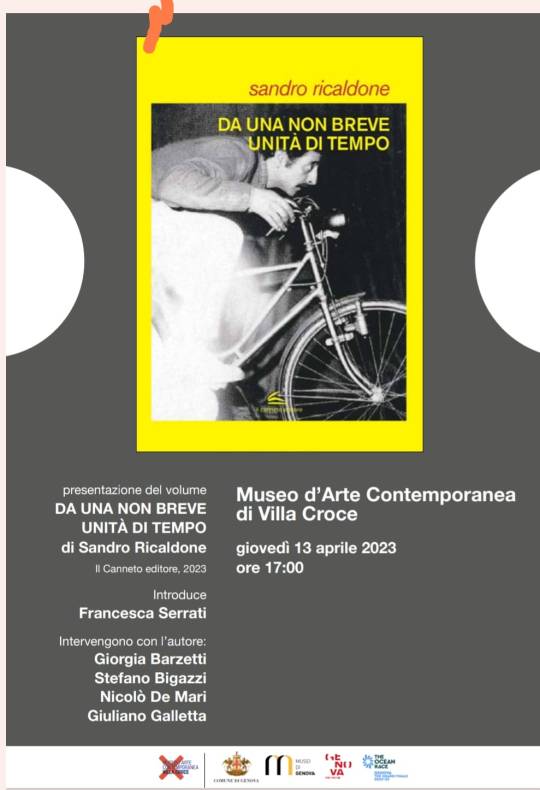
View On WordPress
#Andrea Crosa#Angelo Pretolani#Anna Oberto#art#arte#arte contemporanea#Aurelio Caminati#Bauhaus immaginista#Beppe Dellepiane#Carlo Merello#Claudio Costa#fluxus#Francesca Serrati#Giorgia Barzetti#Giuliano Galletta#Il Canneto#Il Canneto editore#Internazionale Situazionista#lettrismo#Luca Vitone#Martino Oberto#Mauro Ghiglione#Museo d&039;Arte Contemporanea di Villa Croce#Nicolò De Mari#Pier Giorgio Colombara#Pier Giulio Bonifacio#Roberto Agus#Roberto Rossini#Rodolfo Vitone#Sandro Ricaldone
0 notes
Text
The golden sun
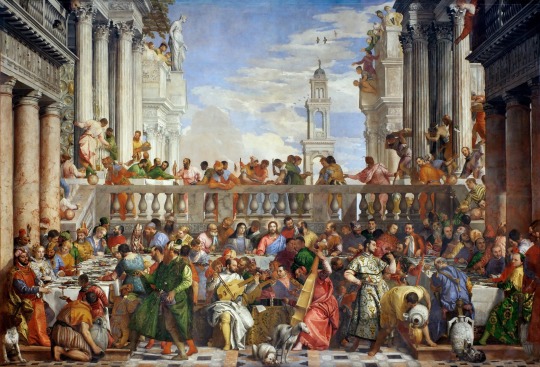
Summary: Many things have happened to the marriage of Francesco de Pazzi and Andrea Sabini, the speech of Jacopo de Pazzi and the appearance of the most talked about woman in Florence, Tamara D'Amato cousin of the bride.
"I can't believe Francesco de Pazzi is getting married," Giuliano said
"So it's true that a good woman can change you," Botticelli joked
"Apparently" Lorenzo took a sip of the wine looking at the new couple, you could see that they were in love.
"Our poor Lorenzo is jealous," Giuliano said
"What? Jealous of Francesco? Never, I'm just happy that he's no longer influenced by Jacopo Pazzi"
"Of course, it's not the fact that you feel a little lonely"
"Not at all, if I want to marry someone I can choose any lady" he laughed
"Sure, what about the woman mother introduced you?"
"Clarice Orsini, Carlo was unable to pessuader her and she became a nun" her brother looked at him for a moment and it seemed that he was about to explode with laughter.
"Don't try to laugh, and let's talk about you instead"
"There is nothing to talk about, because you are doing the same thing" Lorenzo was about to reply when their sister arrived.
"Bianca where were you?"
"With the bride's cousin Lucia D'Amato" she explained and pointed at the young woman
"Do you think the d'Adamato will show up?" Botticelli asked
"If they show up this will be the most remembered wedding in Florence" Giuliano commented, across the hall The Pazzi brothers were talking.
"Congratulations brother" Gugliemo Pazzi was really proud of his brother, even if he did not want to say it, he did not expect Francesco to fall in love, and he had gotten into oace with the obsession of the Medici
"Thank you but if it wasn't for you I don't think I'd be here to toast"
"You did the same thing with me and Bianca, you are my brother this is the least" it seemed that the Pazzi family was going through a period of rebirth and prosperity.
While everyone was celebrating Jacopo Pazzi entered it seemed that he had drunk too much he was drunk.
"Congratulations to my nephew Francesco" he applauded
"How come you are all silent, I thought this was a wedding" he sobbed
"And it is, Messer Pazzi you can stay as long as you want" Andrea said approaching the man
"No more titles we are family now" he smiled, a trail of chills rose on the back of the groom.
"Do you think he has something in mind?" Guglielmo whispered
"I'm going to see" he no longer needed to muster up the courage to talk to his uncle.
"Uncle I'm glad you came"
"I would never miss my brother's son's wedding"
and the man goes away and approached other nobles.
"My love are you okay?" he said
" Yes why?"
"Jacopo Pazzi is never happy for anyone, and now that his most precious pawn is dispossessed he is afraid that I will be against him"
"Honey don't worry, the only thing I can tell you is to follow your mind and your heart, and if you don't know what to do, talk to your brother and your wife" she advised.
"Yes" the major domus interrupted the couple
"Madonna Pazzi, Tamara D'Amato has arrived" he announced
"Well thank you, honey you will meet my best friend"
"I can't believe it, Tamara D'Amato is not ashamed, she shows up here after having canceled her engagement" a noble woman said
"And with that scar on her face who will marry her?" they snickered
"I advise you to ceaseyour gossiping, Tamara D'Amato is still part of the D'Amato family if she wants your heads, she will have them, if you insult Tamara, you insult Venice and Florence" Lucrezia Donati said, and two women stopped talking
The most talked about woman in Florence entered the room and brought a stir and shock with her.
"Congratulations cousin, may you have a prosperous life together," she smiled
"Oh Tamara, your presence here is the best gift" Andrea hugged her
"I would never miss my cousin and best friend's wedding"
"So the rumors are true, she is really a beautiful woman" Bianca said, without taking her eyes off the woman, she had seen noble women but there was something about Tamara, maybe it was her red dress or the long braid that gathered her hair almost to the floor.
"It's not just a beautiful face, his father Leonardo D'Amato has always believed he was raising his children despite being a son or daughter, the woman excels in economics, Latin, Greek, Italian and helps her father" their mother Lucrezia said
"She seems to be a great woman" Giuliano commented
"A woman worthy of being a wife" the mother winked and left
"Mother will never change"
"If it weren't for that scar she could be the most beautiful woman in Florence …" Botticelli said
"A beautiful woman is always a beautiful woman" Lorenzo interrupted
"Are my eyes deceiving or Lorenzo is quite interested in Tamara D'Amato?" the painter teased
"No, but the D'Amato family is a powerful and rich family, our father and Leonardo were about to make an agreement for the sale of silk" he explained, he continued to look at her and it was clear that even with the "scandals" she was charismatic woman.
The woman was approaching the group, the closer she gets, the more Lorenzo looked at her, he had noticed that she had a mole near her left eye.
"Good evening family de Medici and Signor Botticelli" she greeted
"Lady D'Amato is a pleasure to meet you this evening" Bianca greeted shyly, respected the woman
"I'm sorry for your father's death, he was a good man, may he rest in peace"
"I knew that our fathers were friends, my father is getting old unfortunately things have left certain things pending"
"We, their children can continue what they were doing"
"Interesting, I hope we could" before leaving the music began
"Dama would you like to dance with me?" he offered himself and gives her a little grin and accepted her hand. The music started and everybody was ready to dance
"Messer Lorenzo"
" Yes?"
"If you wanted to talk about business, it was enough to talk to my brother Benedetto, there was no need to invite me to dance"
"I didn't invite you for business, I'm just a man who can't resist a beautiful woman" Tamara laughed
" Is this how the famous Lorenzo de Medici steals the hearts of the ladies of Florence?" she smiled
" Steal? No my lady a thief steal, I'm a keeper, the heart of the lady I will love is more precious than diamonds and gold" he whispered on her ear.
" So you are poet too?"
" I'm a man who loves the art, I heard your family supports many artists" he said
" Yes my family support artists, from painters,writers, poets and musicians. House D'Amato is not only selling tessile but we make clothes out of them" she explained, and with the last twirl the dance ended, but their hands was still intertwined.
" I would like to see you" he blurted out
" I mean I would like to see more of your family products" he corrected himself blushing
" Of course our shops are always open" she smiled, bowed and walked away. Leaving the young Lord following her with his blue eyes.
#lorenzo de medici x reader#the medici#x black reader#black oc#black tumblr#black girl magic#black girl joy#black women#1500s#medieval#francesco pazzi#giuliano de medici#t
61 notes
·
View notes
Text

Gold, Cat's-Eye Chrysoberyl, Ruby, Diamond and Enamel Pendant-Brooch, Carlo Giuliano, 1863-1895.
Sotheby's
#victorian#victorian era#victorian fashion#19th century#fashion history#historical fashion#jewellery#jewelry
204 notes
·
View notes
Text
The House of Borgia: Alexander VI's Early Reign (Part 2)
| Part 1 | Part 3 | Part 4 | References |
Popes seemed to pass away with some frequency during Rodrigo's tenure as Vice-Chancellor, for, on 12 August 1484, Pope Sixtus IV died as a result of an illness. Following the Pope's demise, two main contenders emerged for the papacy: Cardinal Giuliano della Rovere and Cardinal Rodrigo Borgia. Both cardinals lobbied heavily for support, using bribes and promises, but neither could secure the two-thirds majority needed. In the end, they worked together to elect a compromise candidate, Cardinal Giovanni Cibo, whom they believed they could control. Cibo became Pope Innocent VIII, and was little more than a puppet for Rodrigo and Giuliano, often wavering between the advice of the two, who continue to antagonise each other.
This would last until 25 July 1492, when Pope Innocent VIII died. And it was finally time for Rodrigo to achieve what he had been aspiring to this whole time. On 11 August 1492, Cardinal Rodrigo Borgia was made Pope Alexander VI. His election was met with huge support from the Roman population, who admired his charm and acts of benevolence. Upon taking power, Alexander quickly transformed Rome, expelling mercenaries, establishing a City Watch, and overhauling the justice system.
His reforms angered the Roman aristocracy, especially the Orsini family, who had previously held power. Nevertheless, Rodrigo made himself accessible to the public, allowing citizens to petition him directly, which was an unprecedented practice.
His personal life stirred controversy when he moved his family, including his mistress Giulia Farnese, into the Vatican apartments. Like he had done with Vanozza, Rodrigo arranged for Guilia to marry an aristocrat, this time Orsino Orsini, who was the son of one of Rodrigo's cousins. Interestingly, through some accounts, Guilia and Lucrezia were close friends.
After moving his family into the Vatican, the next step of Rodrigo's plan was to assign his sons to positions of power by elevating Cesare to the rank Archbishop of Valencia and cardinal, appointing Juan as Captain-General of the Papal Army and arranging the engagement between Jofrè and the granddaughter of the King of Naples.
Jofré wasn't the only child for whom Rodrigo secured a marriage, as he promised Lucrezia's hand to Giovanni Sforza, member of the Sforza Family, which controlled Milan and were in part responsible for Rodrigo's ascent into papacy. Lucrezia married Giovanni on 12 June 1493 and, like it was traditional for the time, their first moment of conjugal intimacy was eyewitnessed by Rodrigo (this will be relevant later, when Lucrezia files for annulment of the marriage).
Lucrezia moved to Pesaro to live with her husband Giovanni, who ruled the town, and there she stayed until 1496, when the couple would return to Rome to be by Rodrigo's side as he battled sickness. Jofrè also returned to Rome with his wife, Sancia of Aragon, who would allegedly become Cesare's mistress, as recorded at the time by the Mantuan envoy Gian Carlo Scalona:
"Jofrè, younger than his wife, had not consummated the marriage; he is not a man and, I understand, for many months past the lady Sancia has given herself to the Cardinal of Valencia."
By this point, due to Rodrigo's behaviour, the Borgia family, had already gained a reputation for sexual misconduct, which is ironic given that his behaviour was not worse than many of his contemporaries in the Church, the only difference was that Rodrigo didn't bother to hide his affairs or his illegitimate children. Rodrigo's children grew up, rumours of the Borgias depravity escalated, making it so that, nowadays, separating fact from gossip is a difficult endeavour.
This becomes especially true when talking about Lucrezia and her marriages. It's known that Giovanni Sforza left Rome around Easter of 1497, and, even back then, it was speculated that he fled fearing for his life, that he believed he would be poisoned. After he left, Some speculated that she began an affair with Pedro Calderon, her father's chamberlain.
Another widespread rumour suggested that Cesare, driven by jealousy over Juan's position as Duke and their father's clear favouritism, orchestrated his brother's murder on 14 June 1497. Regarding Juan's murder, while the killer was never found, there were plenty of suspects: from the Orisini family, to Cesare or Jofrè. Although there is no evidence that either sibling was involved in Juan's death, they seem to be the favourite culprits in modern day media. In Mario Puzo's The Family, Jofrè is the one to kill him, while both in the Assassin's Creed franchise and in Showtime's The Borgias, it's Cesare who plots the assassination. Not even Lucrezia escaped being blamed, as in Sky/Canal+'s Borgia show, she's the one to stab him.
However, the more significant allegation is that of incest. There seems to be evidence of Lucrezia's closeness to Rodrigo and Cesare, as well as of strange behaviour on their part, with accounts of Lucrezia and Rodrigo watching and laughing as horses had sex. There is no evidence supporting these rumors, and they were likely spread by Giovanni Sforza as retaliation for the annulment of his marriage with Lucrezia.
In light of recent changes in the political tides of Italy, Lucrezia's marriage with Sforza was no longer beneficial to the family's political ambitions and so Rodrigo made plans to marry his daughter to another man. However, at the time, the Church did not allow divorce, so the only option was an annulment. To secure the annulment, it was necessary to claim that the marriage had never been consummated. Giovanni was offended by the Borgias' assertion of his impotence, as he believed it undermined his masculinity, and so he began to accuse Lucrezia of having affairs, including with her own brother and father, with the Ferrenase envoy saying that Giovanni claimed "that he had known his wife an infinity of times, but that the Pope had taken her from him for no other purpose than to sleep with her himself". Despite Giovanni's initial refusal to sign the papers, he was eventually pressured by his own family and, in November of 1497, the marriage between him and Lucrezia was annulled.
Around this time, Lucrezia was sent to the Basilica of San Sisto, to be kept away from the public eye. It was also rumoured that she was pregnant, allegedly by her lover, Pedro Calderon.
In February of 1498, Pedro Calderon was found murdered. Once again, Fingers were pointed at Cesare and Rodrigo, whose motive was thought to be jealousy over his affair with Lucrezia. In March of the same year, a new member of the Borgia family was born, he was named Giovanni Borgia and his parentage is unknown, some documents claimed him to be Cesare's son, while others placed him as Rodrigo's son. Giovanni's mysterious origins only fueled the persistent rumors of incest within the Borgia family.
As soon as Lucrezia was free from Giovanni Sforza, Rodriga arranged for her to be married to Alfonso of Aragon, son of the King of Naples. Reports indicate that during the wedding ceremony on July 21, Lucrezia spent much of her time dancing with Cesare instead of her new husband.
Lucrezia was not the only one who had her life plans changed by her father. With the death of Juan, Rodrigo needed a new son to establish a dynasty, and the best candidate for the job was Cesare. Only that he was a cardinal, and therefore, he could not officially have a family or control lands. Since Cesare wasn't particularly religious, he had no objections when Rodrigo asked him to leave the Church. In quick succession, Cesare was given the title of Duke of Valentinois by Louis XII of France; engaged to be wed with Carlotta, daughter of King Federigo of Naples and given the command of some of Louis XII's troops.
There was only one setback: when Cesare arrived in France, Carlotta didn't want to marry him, as she was in love with another man. And, unlike Lucrezia who married whom she was told, Carlotta wasn't so easily influenced and so, the wedding plans fell apart. It wasn't all over, however, as Cesare had made quite an impression on King Louis, who in turn arranged for Cesare to marry Charlotte of Albret, the sister of the King of Navarre. The ceremony was held on 12 May 1499 and was the much needed good news for the family, as it seemed that the political tides were turning back onto their favour.
Using the newly consolidated alliance with the Borgias, Louis XII marched his army to Italy with Cesare by his side, with the intent of taking Milan and the Romagna region. Cesare proved to be a competent military leader, impressing his father and earning the title of Captain-General of the Papal Forces, which was the position Juan held before being murdered.
While Cesare busied himself with war, Lucrezia was pregnant and gave birth to Rodrigo of Aragon on 1 November 1499. Cesare's own wife gave birth to their first child soon after, with Louise Borgia being born on 17 May 1500. For Rodrigo Borgia, this meant that this family had a guaranteed future.
A new problem would soon arise to the family. Whether just two years before an alliance with Naples had been beneficial, now it proved a liability. Not that Cesare needed a political reason to hate Alfonso of Aragon, For Cesare, Alfonso being married to Lucrezia was enough of a crime in itself and his dislike of Alfonso was well known.
When Alfonso was attacked and severely injured on 15 July, rumours quickly identified Cesare as the culprit. Alfonso did survive the attack, but his recovery was slow, and Lucrezia stayed by his side the whole time. The tension between Alfonso and Cesare was at an all time high, with Alfonso even firing a crossbow bolt at Cesare, and then claiming it had been an accident. On 18 August 1500, Alfonso was found murdered inside his own room, strangled by the commander of Cesare's personal guard.
While Lucrezia was noted as being distraught over her husband's passing, she seemed to quickly forgive her brother after he paid her a visit in the villa that she had isolated herself in. What Cesare told her or what they did remains unknown, but after his departure, Lucrezia's mood significantly improved. Another incident suggestive of incestuous feeling among the siblings occurred when Cesare demanded to sleep in the conjugal bed of Lucrezia and Giovanni Sforza when occupying the latter's castle in Pesaro.
5 notes
·
View notes
